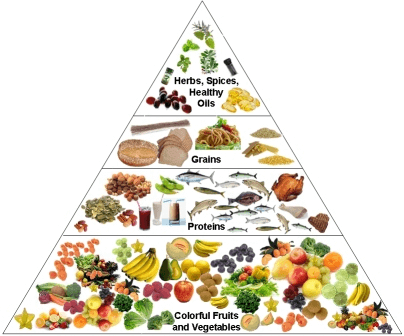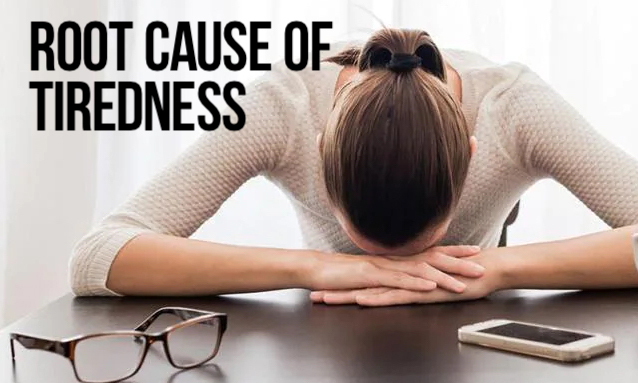In this post, we are going to discuss what are the root cause of tiredness and how to address these symptoms.
Normally we do not observe our body’s responses to different things. We do not pay attention to what we are eating, doing or thinking. Once we start observing our body and mind then only we can discover the real problem within our body.
Below are what could be the root cause of tiredness and brain fog.
Food

Firstly, food can be the main culprit of most of our problems. Different foods affect our body and mind in differently. Fundamental truth is what goes in comes out. We may not have any direct symptoms with food, so it is really hard to tell which food is causing us tiredness. So, it will be a good practice to start eliminating different food items from our diet and monitor our energy level and mood for a couple of days. By trial and error, we can eliminate few specific food items from our diet which can change our life. The main culprits could be milk, wheat and late afternoon caffeine consumption etc and it can be different result for person to person.
Mental Health

A fully occupied brain or mind can cause our body to go out of order. Our brain is always occupied by thoughts, worries, and it is never relaxing. We need to calm our mind down and give focus to more realistic things in life.
In short, if we are feeling tired all the time, it is essential to start observing our body and mind differently. Pay attention to what we eat, do, and think. Try to analyse daily activities, routines, and body’s response. Discover the root cause of tiredness and take control of health and lifestyle. Make necessary adjustments to diet, physical exercise routine, and mental health. It might take some time and effort, but it will change our life.
Here are the things that will help to boost our energy and banish brain fog:
Cutting out milk: milk could affect our body in a way that we never realised before. Try to avoid anything that contains milk or milk products. Observe your body and try to feel any changes in your body and take action accordingly.
Eliminating wheat: Wheat products also can cause digestive issues and constipation, which could make us more tired and unfocused. By switching to whole wheat bread and avoiding bleached flour, we can able to regulate our bowel movements and reduce brain fog.
Testing eye and using eyeglasses: Someone who spends a lot of time in front of a computer, putting a lot of strain on eyes. This may cause eye muscle stress, which in turn will make feel tire and unfocused. Get eye tested and if necessary, start wearing reading glasses, it could make big difference in our alertness and focus. By reducing the strain on our eye muscles, more blood will able to flow in our brain, giving energy will help to stay productive all day.
Avoid caffeine for goodnight sleep: Consuming coffee or tea in the afternoon can negatively impact on our sleep quality and feeling tired and groggy the next day. To ensure a restful night’s sleep, we can try stopping caffeinated beverages after 1 PM. Quality sleep is essential for energy and productivity, and ensuring that we go through a REM cycle at least once helps us wake up feeling refreshed.
Regular exercise: To improve our overall health and energy levels, we have to start exercising. Regular exercise will help proper blood flow and oxygen intake, strengthens muscles, and increases stamina over time. It is important not to over-exercise and to gradually increase the intensity of the workout.

Portion control for better digestion: Study found that eating only up to 75% of stomach capacity helps to avoid feeling tired and sluggish after a meal. Overeating can cause brain fog and fatigue. By controlling portions, we can enjoy our meals and feel energized throughout the day.
Regular bowel movements: Ignoring the urge to have a bowel movement can cause delayed digestion and contribute to brain fog and tiredness. By making it a priority to take bathroom breaks frequently, we can feel refreshed and energised as the blood flow shifts from stomach to brain.
Dietary Supplement: Taking Multivitamins, Calcium, Magnesium and Zinc combination can improve our daily energy levels. It is important to take vitamin D only in the morning and to take the cal-mag-zinc supplement at bedtime for deep sleep and a refreshed wake-up. Consulting with a healthcare provider is recommended and doing a complete blood test to determine if additional vitamins or minerals are necessary for optimal energy levels.
Incorporating more fruits and vegetables into our diet and reducing meat consumption can aid our body in the digestion process and increased our energy levels.

By reducing sugar intake, we can avoid insulin spikes and maintain a healthier diet.
Feeling a sense of accomplishment before going to bed can improve sleep quality. Whether it’s completing unfinished work or simply tidying up work space, feeling accomplished before bedtime could help us to relax and get better rest.
Practice a breathing exercise before bed can help expand our lungs and prepare our body for a restful night’s sleep. By inhaling deeply into our stomach and counting five before exhaling and repeating, this process can significantly improve our sleep quality.
Planning for tomorrow and having something to look forward will help to get out of bed more easily in the morning. By setting small tasks and being excited about them, we can easily get motivation to start our day with a positive attitude.
Consistently going to bed at 10 pm will help to optimize our body’s performance and avoid confusion in our sleep schedule.
Incorporating deep breathing exercises into our day, such as practising 5 minutes of deep breathing and relaxation during work breaks will also help to increase energy levels and focus. A quick 10 minute power nap in the afternoon can have also similar benefits, but when that’s not feasible, deep breathing exercises can help us to stay energized.

Reducing Social Media time will allow us to enjoy real-life experiences and maintain our physical and mental health. By browsing social media sparingly and recognising that it only shows the positive moments of others’ lives, we can maintain a healthier relationship with technology.
Reduce stress by creating a To-Do list: A happy mind equals more energy, so we trick our mind into feeling accomplished by writing down everything we need to do. When we see the list, we feel like we have already completed half of the tasks. Spending 10 minutes every day reviewing and updating our list, crossing off completed items to recognize our accomplishments. This helps us destress and gain clarity on what needs to be done and what to prioritize. It’s a mental boost of energy for us.
Talk less, gain more energy – Fast talking can decrease oxygen intake and it could make us feel tired for the rest of the day. If we slowed down our speech, listened more, and took a few seconds to think before answering. Breathing in between conversations to ensure proper oxygen intake, leading to more energy.
Stay conscious of the above practices – When we feel tired, we think about which of these practices we may have missed and then fix them. If we implement these changes and adopt healthy lifestyles our tiredness will disappear, and our energy levels will increase, bringing our life back to normal. If any of these practices resonate with you, give them a try!

